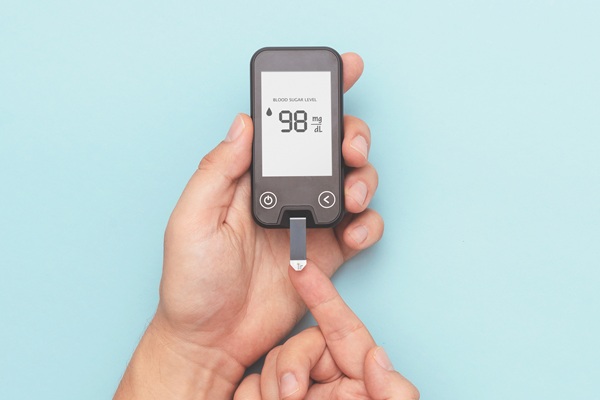Regular Diabetes Check from Your Primary Care Physician

Having a consistent diabetes check can help regulate your blood glucose level better. Your PCP (primary care physician) can do this to manage your diabetes. This process can only be successful by maintaining constant communication with your PCP. If you want to know the important aspects of a regular diabetes check, here are the details.
Importance of a PCP in managing diabetes
The relationship between the PCP and the patient is important. This maintains close communication to help the patient achieve optimal health. Diabetes is a chronic condition. It affects many people around the world.
A PCP has partnerships with other doctors and healthcare providers. This allows collaborations among health professionals to help the patient manage diabetes. The insights from these professionals motivate the patient to perform a diabetes check as often as possible. Improving health is much easier with health professionals working together through the PCP.
The PCP helps manage diabetes
The ongoing wellness of the patient depends on the efforts of the patient and the PCP. A good PCP provides care for injuries or illness, chronic follow-up care, and vaccines. The doctor can also facilitate diabetes check and Hba1c testing. Working with other health professionals ensures proper care from the PCP. Both long-term and short-term health goals will be easy to reach with this much effort.
Factors like diet, current therapy, and a regular diabetic check can make managing diabetes more effective. Diligence can prevent complications like kidney failure and vision loss. Being careful with consistent diabetes checks and weight management can help maintain consistency in the patient’s figures. Following the PCP’s treatment plan for the patient will have positive results in the patient’s health.
Checkups and a diabetes check
Controlling blood sugar levels with a regular diabetes check, healthy diet, and fit lifestyle is important. Taking diabetes medications must be on time as well. These practices will help manage the patient’s blood glucose levels. The PCP will need the values of the patient during checkups. Regular visits will be a way to keep an eye on the patient’s progress in managing diabetes.
During a checkup, the PCP will conduct a diabetes check. This will consist of the patient’s current blood glucose and Hba1c levels. The visit will give the patient an opportunity to ask the PCP some questions. It will give the patient more information about the chronic condition. The PCP will ask some probing questions to determine what may be causing fluctuations in the blood sugar levels. Eating habits may need to change.
The patient must see the PCP every three to six months. During each checkup, the doctor will check the patient’s feet, blood pressure, and weight. The patient must also see the dentist every six months. The doctor will also check the injection sites to see if there are lumps in the fat under the skin. The PCP will also need to inspect the abdomen for a possible enlarged liver.
A diabetes check from your PCP aims to help manage your diabetes with efficiency
Making sure your blood glucose levels are within an acceptable range is your PCP’s goal for you. This will enable you to do your daily activities smoothly. The diabetes check at the clinic during each checkup helps your PCP determine your blood glucose levels. It can also indicate how well the patient has been following the treatment plan.
Get more information about TKZ Pediatrics in Zachary at https://www.tkzpediatrics.com.
Check out what others are saying about our services on Yelp: Diabetes Check in Zachary, LA.
Related Posts
A pediatrician helps turn confusing nutrition advice into routines that support healthy growth, steady energy, and better sleep. Kids' appetites change quickly, and busy schedules may lead to grazing, skipping breakfast, or reaching for sugary drinks that crowd out more nourishing foods. Fortunately, guidance that fits a child's age, temperament, and health history can make…
Regular checkups with a doctor for children, or a pediatrician, offer far more than a routine examination. These visits provide ongoing education, reassurance, and customized guidance at every stage of life. With a reliable schedule of wellness checks and careful monitoring of development milestones, young patients can receive the support they need to thrive from…
Same-day acute pediatric care provides families with fast access to medical attention when sudden illnesses or injuries arise. Rather than waiting for an available appointment or visiting the emergency room, parents can bring their child to a pediatrician who offers same-day care for non-life-threatening concerns. In this way, children can conveniently access effective treatment that…
Pediatric asthma affects breathing, sleep, school performance, and family routines. Early diagnosis and consistent management improve control and reduce the need for urgent visits. A pediatrician tailors therapy to symptoms, triggers, and growth patterns. With the right plan, pediatric asthma can remain manageable, allowing kids to stay active.Asthma symptoms often flare when children encounter allergens,…
